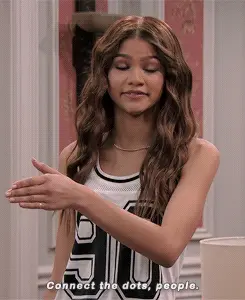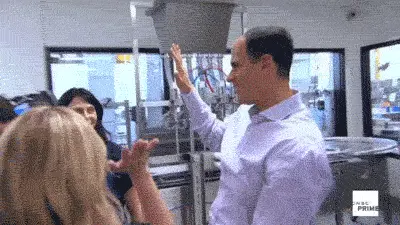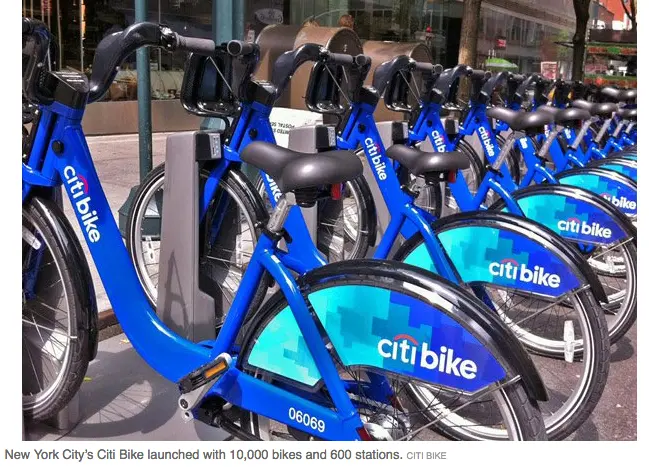
Remember how we discussed Influencer Marketing in a recent post? (If you haven’t read it already, check it out here.)
In that post, we discussed how to nab influencers that will promote your products. It’s an effective marketing tool that you should absolutely consider to grow your business.
But, in this post, let’s turn that concept over on its head and make you the influencer. Now, instead of finding people to sponsor, you find people who will sponsor you.
Let’s get started.
Here’s a list of media kit resources to help you secure sponsorship for your business.
Why Do You Need a Sponsor?
This one is pretty obvious, right? You need a sponsor to provide money or other considerations to help your business grow. But, my question isn’t just searching for a generic response. I want you to get super specific about what you need from a sponsor.
And the answer may not be money. Some of the best sponsorships don’t offer money at all. Instead, many sponsors can provide other resources, such as equipment, brand promotion, network connections, industry introductions and more. So, be open to the possibility of a non-money sponsorship. These type of sponsorships can be easier to obtain than money and they can also be more valuable than money, too.
What is a Sponsorship:
Sponsorship is a lot like advertising. Both, your business and the sponsor, get something from it. In many cases, you get money or some other financial consideration out of the deal (cha-ching!), and the sponsor gets an introduction to your audience.
No matter how you slice it, the party who should receive the most value from your sponsorship is your audience. That’s right– not you, not your sponsor, but the audience that both you and your sponsor intend to reach. Otherwise, what’s the point? You’ll have an office filled with nice swag, but your audience doesn’t care about that– they only care about how you can help them.
Remember, always view your sponsorship from the point of view of your audience. Does your sponsorship make sense to your audience? Have you connected the dots? How will your sponsorship help your audience win?
What a Sponsorship is Not:
As I mentioned above, sponsorship is not limited to just money.
A sponsor can provide gifts of products, services and other considerations as part of the deal . For example, a sponsor can gift you their equipment to host your podcast, or offer mentorship and consultation in exchange for the publicity of doing so.
Provide value and make a meaningful connection between your sponsor and your audience. Click To Tweet
And on that note, sponsorship is not just about posting a logo at your event or on your website. It’s about providing value and making a meaningful connection between the sponsor and your audience.
But, you have to be super careful not to take on every sponsor who’s willing to give you financial consideration because not every sponsor will be a good fit for your audience, and it could ding the audience’s trust in your brand.
6 Ways to Get More Sponsorship
#1 Start Thinking Like a Business
Sponsors are not carelessly giving out money.

Nothing in life is given for free. Nothing. And that truism definitely extends to sponsorship. While it may seem like free money– it’s not. Brands who are willing to sponsor you want something in return. So, start thinking about what you can offer that brand in return for their financial consideration.
If you want to impress potential sponsors every time, you must be able to effectively present the benefits of working with your brand.
To help you in that pursuit, here are a few questions you need to answer before approaching potential sponsors:
How will a sponsor benefit from working with my brand?
Get specific here. No grand ideas of dominating the world and no warm, cuddly but vague notions of helping a fledgling startup find its wings. You’ve got to be extremely realistic and look at it from a dollars and cents bottom line perspective.
How does my audience share mimic the audience needs of my potential sponsor?
Chances are, your potential sponsor wants to reach your audience. So, what about your audience would be desirable to that sponsor?
Remember that having a slick answer isn’t enough. You’ll also need to have a little something called proof. You can present proof through testimonials or cold hard metrics (such as Google Analytics that show the amount of traffic you average on your site). Those are good for quick snapshots, but you may also want to consider case studies.
Case studies help a sponsor see your unique value proposition in action and understand how you work with your clients.
No matter what you do, be sure to sell yourself.
To do that, get clear about the following:
What can you provide? Is it exposure to a new audience?
What type of audience do you have? Is the right demographic that the sponsor is after? Is your audience highly-engaged and motivated?
What do you need from a sponsor? Equipment? Money? Services?
After you’ve settled your needs and what you can provide, it’s time to create a sponsorship plan around that. For example, you can create sponsor packages where you rent out real estate on your website, your podcast or your event to a sponsor in exchange for financial consideration.
There are so many different types of sponsorship agreements you can choose from. Let the needs of your audience and your brand guide you.
#2 Find Sponsors
So, where are your potential sponsors hiding?
Your current customers may hold the clue.
Where else do your customers shop? What brands do they use? Those are the first brands to reach out to. You can show these brands that you have the same customers, and you’d like to work together with them.
So, the next step is finding the key person who makes sponsorship decisions. Some businesses have fleshed out sponsorship programs and others have never considered it before, but they are willing to give it a try.
Google is your friend, here. Do research on whether this brand has past or present sponsorships. Look for key individuals in the corporate office. Then, make the call or email, asking politely for their sponsorship guidelines. They probably don’t have sponsorship guidelines already in place, but it’s a good icebreaker that can get you to the right point person.
Once you get in contact with that person, be ready from word “go”:
- Don’t make them guess.
Explain how the sponsor can participate. Prepare a proposal that lays out exactly who you are, what you want, and how the sponsor can participate. You can think of your sponsorship proposal much like a business plan.
- Connect the dots.
Discuss your mutual customers and how the sponsorship will benefit both of your brands. Be sure to lead with benefits, don’t sink into all the details.

- Get them face to face.
It’s harder to say “no” when face to face. So, do whatever it takes to meet with them eyeball to eyeball, even if that means on Skype.
- Show why you’re the one.
Put their minds at ease by giving them the proof that your brand is a good choice for them. I recommend creating a media kit and having that ready as an email attachment and also available on your website.
#3 For Your Contest
You have a wonderful opportunity to give a valuable prize to your audience from a non-competitive business that serves the same customer base, you just haven’t thought of it yet. That’s your mission.
If you’re interested in increasing exposure for your brand or to get people excited about a new product, you should definitely host a contest.
But, instead of using your own products or services, you can give away something from your sponsor. This benefits them because they get more exposure. It benefits you for the same reason, and also you have the added bonus of increasing your email list and incentivizing your community. And you’re not out any money. It’s all kinds of win.
So, think of some product that will benefit your mutual customer. And then approach the maker of that product, the brand, with your idea. Have a complete strategy prepared– don’t expect the brand to brainstorm with you. See the vision first and then share it. But be flexible because the brand may have its own ideas, too.
For more information, check out this related post: Why Contests Work (and How to Run One).
#4 Crowdfunding for the Win

Who says your sponsor has the be a corporate entity? It can be just a group of everyday people who believe in your product or service and want to support you.
Crowdfunding may be the perfect solution for many brands who want sponsorship.
If you’d like to learn more about crowdfunded sponsorship (and you totally should because it’s awesome), head over to our two fave posts on this topic:
#5 Manage Risks
Be realistic with what you hope to gain from the sponsorship, and what you can give in return. Don’t sell what you can’t fulfill.
It’s one of those deals where you under-promise and over-deliver. You never want to be in a situation where you have to deliver less than promised results because that will pretty much destroy any future agreements with this sponsor, and it could tarnish your brand.
While you probably don’t know the future, you can make an educated guess on what you’re able to deliver, using past performance as a measuring stick.
#6 Develop a Thick Skin
Chances are, you’ll get a lot of doors slammed in your face. Not everyone will be willing to sponsor you. That’s okay. In retrospect, you’ll realize you weren’t a good fit for that brand anyway.
I have good news: there’s practically an unlimited supply of sponsors if you’re able to think creatively and find a suitable campaign for their brand. I see creative sponsorships all the time, such as:


Image Courtesy of Bicycling.com
The only limit is your imagination. I’m sorry, that was really cheesy, but you get the idea. If someone says “no”, don’t let it slow you down, just move to the next. It’ll happen eventually.
Good luck!
So, what’s your favorite creative sponsorship? Let us know on Twitter @KickoffLabs.